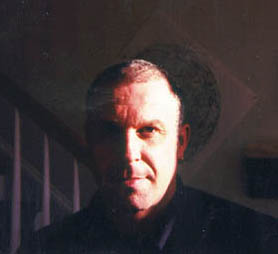
1 February 2011
by Justice Putnam
Black Kos Poetry Editor
The anti-apartheid, white South African poet, writer and painter, Breyten Breytenbach, was exiled after marrying a French national of Vietnamese descent while studying in Paris in the early '60's. The Prohibition of Mixed Marriages Act of 1949 and The Immorality Act of 1950 made it a criminal offense for a white person to have sexual relations with a person of a different race. He made a trip to South Africa in 1975, was discovered in the country, (it has been reported that the ANC betrayed him to the government because they didn't trust him), arrested and sentenced to seven years of imprisonment for High Treason. Massive international intervention ultimately secured his release in 1982, he returned to Paris and obtained French citizenship.
Nigerian poet, novelist and musician, Chris Abani has a prescience that is almost uncanny. His first novel, Masters of the Board, about a neo-Nazi takeover of Nigeria earned him praise as "... (A)frica's answer to Frederick Forsyth." The government, though, believed the book to be a blueprint for an actual coup and sent the 18 year old Abani to prison in 1985. After serving six months, he was released; but he went on to perform in a guerilla theatre group which led to his arrest and imprisonment at the notorious Kiri Kiri prison. He was released again, but after writing his play Song of a Broken Flute, was arrested a third time, sentenced to death and sent to the Kalakuta Prison; where he was jailed with other political prisoners on death row.
Languishing most of the time in solitary confinement, Abani was finally and fortunately released in 1991. He lived in exile in London until 1999, when he emigrated to the United States; where he currently teaches at UC Riverside in California.
With events in Egypt unfolding; and the following poem written in 2006, it seems Abani's prescience is once again put to the fore.
Hanging in Egypt with Breyten Breytenbach
There are stones even here
worn into a malevolence by time
gritting the teeth and tearing
the eyes with the memory.
Out in the desert, the wind
is a sculptor working the ephemera
of sand. Desperately editing steles
to write the names of thousands of slaves
who died to make Pharaoh great.
It is a fool’s game.
And we are like the blind musician
at the hotel who tells us with a smile:
I’ll see you later.
The guard at the pyramid eyes me.
Are you Egyptian? he demands,
then searches my bag for a bomb.
At the hotel they speak Arabic to me,
don’t treat me like the white guests,
and I guess, even here, with all
the hindsight of history we haven’t
learned to love ourselves.
I cannot crawl into the tombs, and cannot
explain why. How do you say: In my country
they buried me alive for six months?
And so you lie and tell yourself this is love.
I am protecting the world from my rage.
Rabab tells me: We know how to build graves
here. I nod. I know. It is the same all over Africa.
Do you have a knife? Do you have one?
the guards at the museum ask Breyten and me,
searching us. We call this on ourselves. We
are clearly political criminals.
I trace the glyphs chipped into stone.
As a writer I am drawn to this. If I could
I too would carve myself into eternity.
Breyten watching me says: Don’t tell me
you’ve found a spelling mistake in it!
A line of miniature statues is placed
into the tomb to serve the pharaoh.
One for each day of the year. Four hundred.
The overseers are a plus. I think
even death will not ease
the lot of the poor here.
Statues: it seems the more I search the world
for differences the more I find it all the same.
Perhaps the Buddha was a jaded traveler too
when he said we are all one.
Mona argues about who should pay
to see the mummies. It isn’t often I can
treat a girl to a dead body, Breyten insists.
A woman nearby tells her husand she can see
dead bodies at work. Why pay?
Do you think she works in a hospital? I ask.
That or the U.S. State Department, Breyten agrees.
From the top of Bab Zwelia, flat rooftops
spread out like a conference of coffee tables.
Broken walls, furniture, pots, litter the roofs
like family secrets sunning themselves.
Two white goats on a roof chew
their way through the debris.
On the Nile, Rabab sings in Arabic, tells me
she wants to be Celine Dion.
She is my sister calling me home to Egypt.
Perhaps one day I will be ready.
For now it is enough to know I can
be at home here.
-- Chris Abani

No comments:
Post a Comment